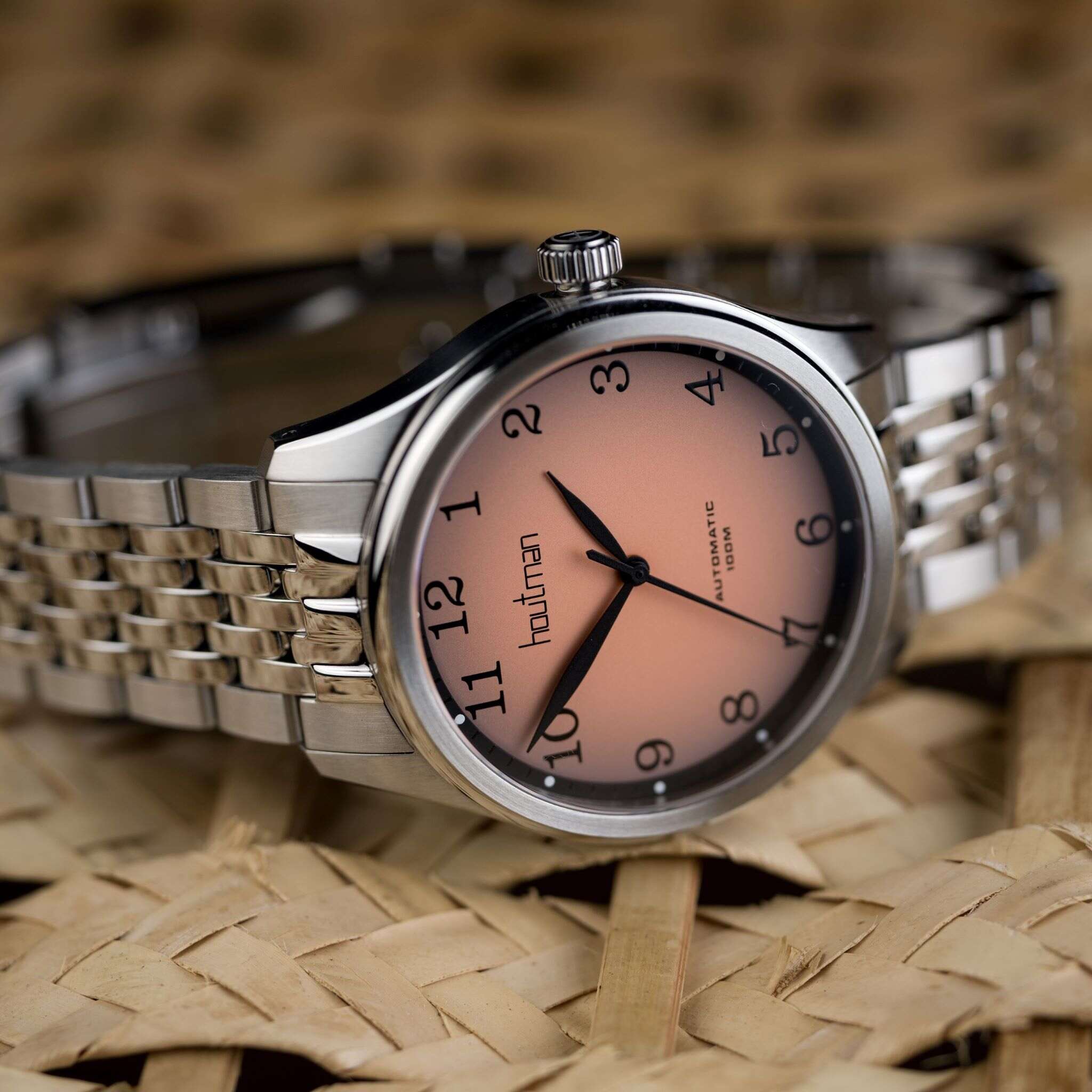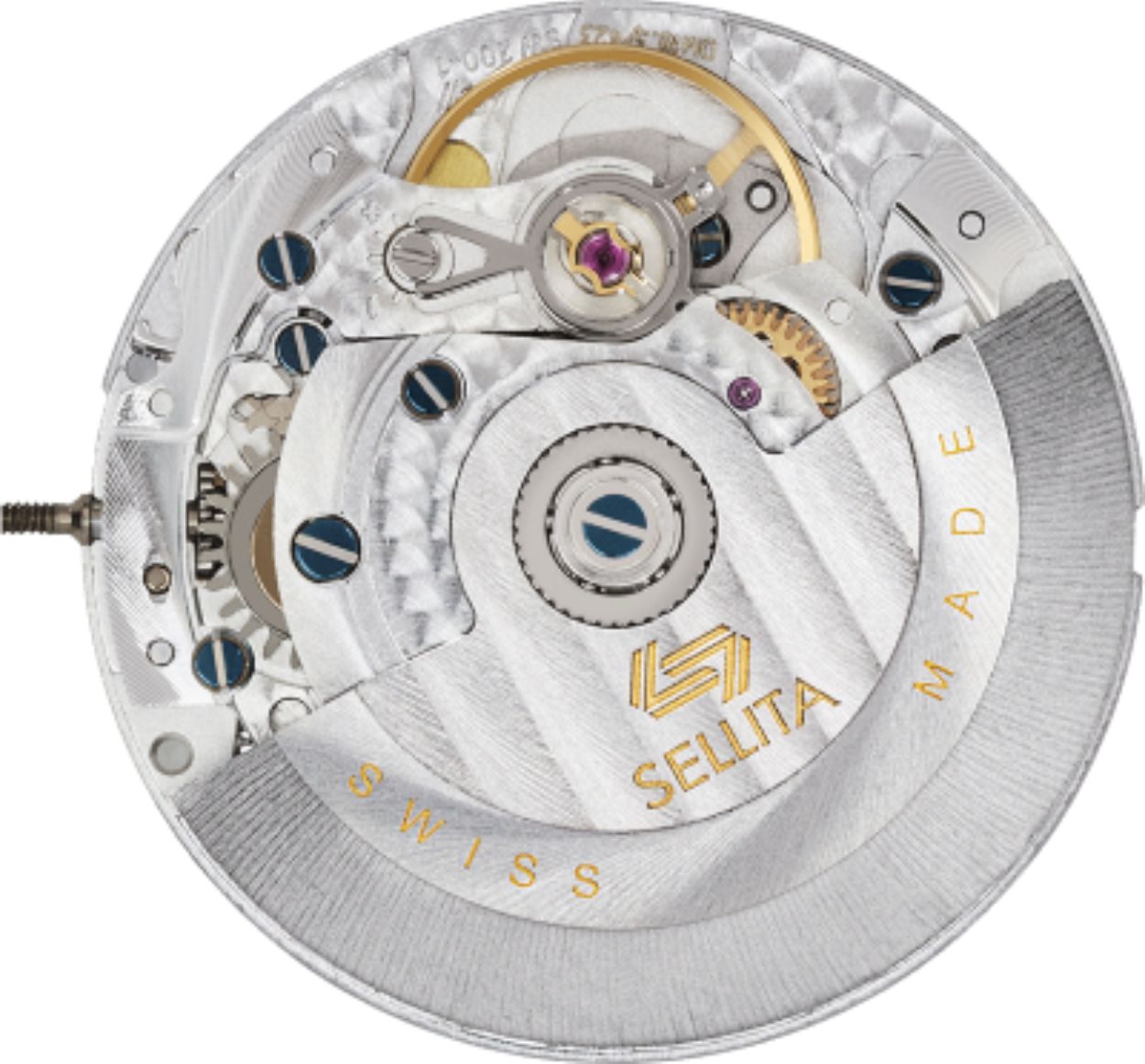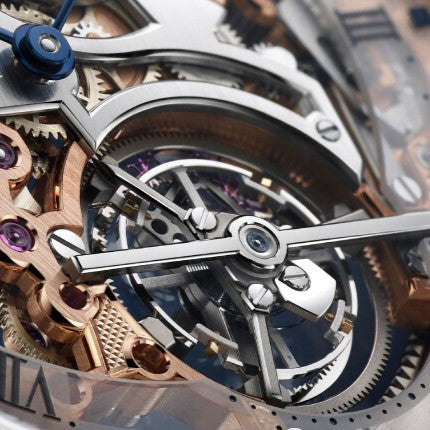
Why You Should Consider an Automatic Watch for Your Next Purchase
If you are looking for a new watch, you might be wondering whether to choose an automatic or a quartz watch. While both types of watches have their pros and cons, in this article, we will focus on the benefits of owning an automatic watch and why you should consider one for your next purchase.
Related reading - Why Mechanical Watches Still Matter in the Age of Smartwatches
What is an automatic watch?
An automatic watch is a mechanical watch that uses energy from the wearer to power itself instead of needing to be manually wound or using a battery. It has a metal weight called a rotor that spins when you move your hand, and this way winds the main spring of the watch. Automatic watches differ from old-school mechanical watches in the way the energy is generated – a “mechanical” watch is a manual-wind timepiece has nothing but a crown for creating energy, the automatic equivalent possesses a freely spinning rotor that does the job for you.
Automatic watches usually come with a manual winding option, too, despite the existence of a spinning rotor doing the job. Why is that so? It is because the rotor isn’t always able to wind the watch – for example if the watch is not worn for a number of days, the manual wind feature allows you to get a power into the watch before stetting the time and wearing.
The amount of time an automatic watch will run after it’s fully wound is called a power reserve, and it is typically around 40 to 50 hours. However, the power reserve can stretch even to 60-80 hours with more advanced movements. This means the watch will continue to run for at least 40 hours after being taken off your wrist once fully wound Therefore, you can leave the watch on a bedside table for the night and find it still running in the morning.
What are the advantages of an automatic watch?
There are many reasons why you might prefer an automatic watch over a quartz watch. Here are some of the main advantages:
Luxuriousness. The mechanism that consists of more than a hundred tiny parts hand-assembled by professionals, something that is just more appealing and impressive than a simple battery-powered circuit. Automatic watches have a long history and tradition of craftsmanship and innovation that quartz watches can’t match.
No battery. It means you don’t ever have to worry about the battery running empty or wasting time on replacing it. You also don’t have to worry about the environmental impact of disposing of the battery. As long as you wear your watch regularly, it will keep running- if it does go flat, just give it a quick wind and its ready to go back on your wrist.
Sweeping hand. Instead of taking one step per second like a quartz watch, an automatic watch ticks more times per second, creating a beautiful sweeping motion that looks smooth and elegant. This is one of the most distinctive and attractive features of an automatic watch1.
See-through caseback. Some automatic watches have a transparent caseback that allows you to see the movement in action. This is a fascinating and mesmerizing sight that showcases the complexity and beauty of the mechanism. You can also appreciate the fine details and decorations of the movement, such as the jewels, the engravings, or the rotor.
Personal connection. An automatic watch is more than just a timepiece. It is a companion that reflects your personality and style. It is a living thing that responds to your movements and habits. It is a piece of art that you can admire and enjoy. It is a heirloom that you can pass down to your children or grandchildren.
What are the disadvantages of an automatic watch?
Of course, no watch is perfect, and automatic watches also have some drawbacks that you should be aware of. Here are some of the main disadvantages:
Accuracy. Automatic watches are not as accurate as most quartz watches. They can gain or lose a few seconds per day, depending on the quality of the movement, the position of the watch, the temperature, and the magnetism. This means you might have to adjust your watch from time to time to keep it accurate.
Price. Automatic watches are usually more expensive than quartz watches, due to the complexity and craftsmanship involved in making them. All automatic and mechanical movements are hand assembled, where quartz can be made by automatic or semi auto machinery.
Size. Automatic watches tend to be thicker and heavier than quartz watches, due to the space needed for the rotor and the movement. Occasionally this might make them less comfortable or suitable for some people, however with design and movement election nice profile watches can be made – such as our Pilbara and Murchison series, both less than 12mm thick. Weight wise, we have found that many people prefer the extra weight and presence of an automatic watch on their wrist- and in fact we design some quartz watched with extra thick case backs to add weight.
How to choose an automatic watch?
If you are convinced that an automatic watch is the right choice for you, you might be wondering how to choose one among the many options available. Here are some tips which may help you find your perfect watch:
- Budget. The first thing you should consider is how much you are willing to spend on your watch. Automatic watches can range from a few hundred to thousands of dollars, depending on the brand, the quality, the features, and the materials. You should set a realistic and comfortable budget and stick to it.
- Movement. Various movements have their own quirks and personalities, some are by design more robust and reliable – our favourite automatic movements include the Miyota 9000 series, the Sellita Sw300, and the NH35 – all movements that have proven reliable, with the Miyota and Sellita feature a nice 28800bhp seconds hand sweep.
- Style. Of course, you must consider is the style of the watch. Automatic watches come in various styles, such as dive watch, sport watch, dress watch, pilots watch, or something more unique. You should choose a style that matches your personality, preferences, and wardrobe. You should also consider the size, shape, colour, and design of the watch, and how it looks on your wrist.
- Features. You will also need to consider the features of the watch. Automatic watches can have different functions and complications, such as date or no date, day, chronograph, moon phase, GMT, or tourbillon. You should choose the features that are useful and meaningful to you, and that you will actually use. Our designs tend to revolve around the simple 3 hand, no date, movements for simplicity, symmetry and ease of use.
In summary
An automatic watch is a mechanical watch that uses energy from the wearer to power itself. It has many advantages; luxuriousness, no battery, sweeping hand, and personal connection. To choose an automatic watch, you should consider your budget, style, and features, along with the manufacturers reputation, warranty and customer service.
We hope this article has helped you to understand why you should consider an automatic watch for your next purchase, and how to find the best one for you. If you have any questions or feedback, please let us know.



1 comment
Thank you so much for this blog! It’s really helpful for me. The details about this men’s watch are amazing, highlighting its style and craftsmanship perfectly
Shruti Sharma
Leave a comment
This site is protected by hCaptcha and the hCaptcha Privacy Policy and Terms of Service apply.